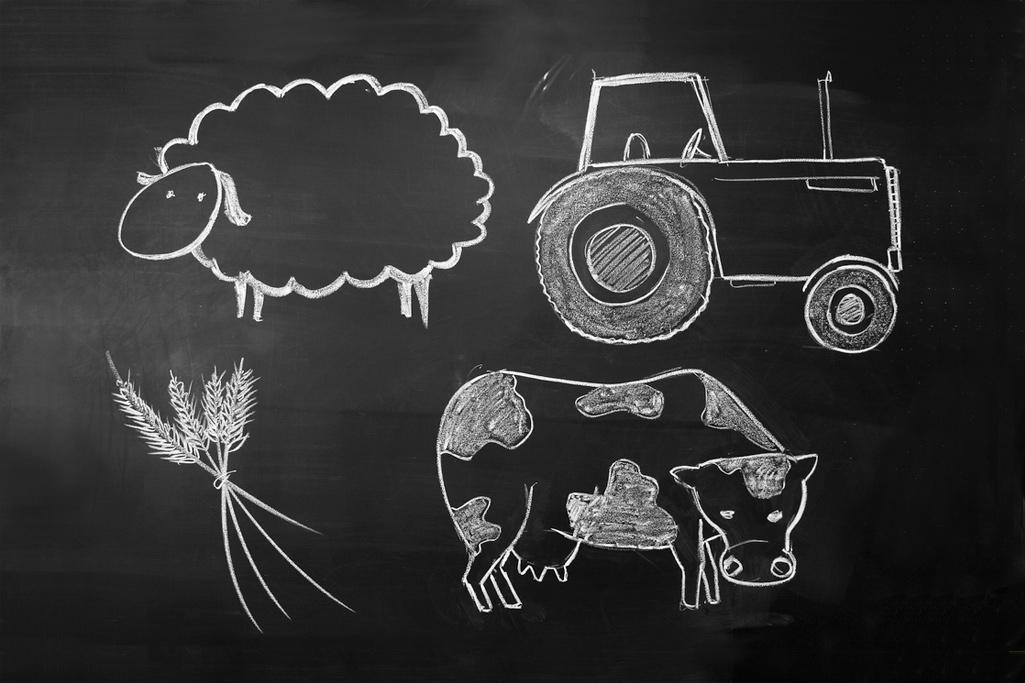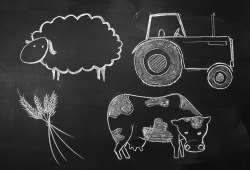Send your question to Umbra!
Q. Dear Umbra,
I am currently in college majoring in computer science and am preparing to tackle all the higher math classes my major requires (algebra, calculus, etc.). But there’s a problem. When I started this major three years ago, I was really into this, but now I am considering a new major — but I’m not sure what exactly it should be. I truly enjoy working in gardens and agriculture, yet am not sure what kind of majors are out there that pertain to this particular field. What would you suggest/recommend?
Roger
Allentown, Penn.
A. Dearest Roger,
A few weeks back, I reassured a worried father that his son should stick with his engineering major because it would lead to lucrative opportunities in his field. Today, I am going to counsel you to stick with your major as well — and then go work in a field. Field, field. Get it? Yes, I do have an advanced degree in hilarious wordplay.
Your anxiety is not uncommon. You have put three years into a computer science major, you have presumably one year to go, and suddenly you find yourself wondering: Have I made the right choice? Or have I destined myself to a lifetime of soulless jobs and stunted ambitions? It probably feels like you’ve reached an all-or-nothing moment, where you must lock yourself in to the ride known as The Rest of Your Life. But things can change at any time. That’s what makes the ride so darn interesting.
Last month, for instance, we ran a story about the rise in women farmers. It featured Hannah Breckbill, who majored in math in college and then promptly decided she had no interest in academia. Found herself some farming internships, and this year, at 25, she’s launched her own farm on rented land. (You can hear her describe her path in this short interview with WNYC.) That could be you, Roger!
Know what urban farmer extraordinaire Will Allen majored in? Education (with a side of basketball). How about Agriculture Secretary Tom Vilsack? History. Organic farmer Eliot Coleman? Spanish literature. Sustainable-ag darling Joel Salatin? English. Of course, some farmers do study farming — in fact, enrollment in the country’s agricultural schools happens to be booming — and seasoned farmers will tell you that it takes a lifetime of study to master the art and science of growing things. But my point is, a degree in ag science is not a prerequisite for making a living related to the land.
I say stick it out for one more year. Surely changing majors at this point is more trouble than it’s worth. Maybe you can find an elective or two related to your real passions, or — even better — relieve the stress of all that calculus and algebra by tending the flowers on campus or volunteering at a local farm. Then when you’re out of college, there will be all sorts of ways to learn more. This list of resources from the Northeast Beginning Farmers Project is an excellent starting point. There is a very interesting program right there in Emmaus, just a few miles from Allentown, called The Seed Farm, that offers training and apprenticeships. It looks like you have to have a year of experience before you’re eligible, but I bet if you get in touch with these people they will have great ideas for where to begin. Of course, you are also in the land of Rodale, which could be a good resource as well (if it hasn’t gotten too vapid).
You might also read this short essay by a computer programmer who is trying his hand at farming. Although its conclusions are primarily related to (spoiler alert!) his faith, it will reinforce the idea that other people in the world do switch gears. Of course, it might well be that all your studies come in handy: This basic explainer on mathematics and farming hints at just how helpful they could be.
Above all, Roger, keep your stress to a minimum and keep an open mind. Life is a long and winding road, and college will feel like a blip in your personal history before you know it. Or so I’ve heard.
Sentimentally,
Umbra




